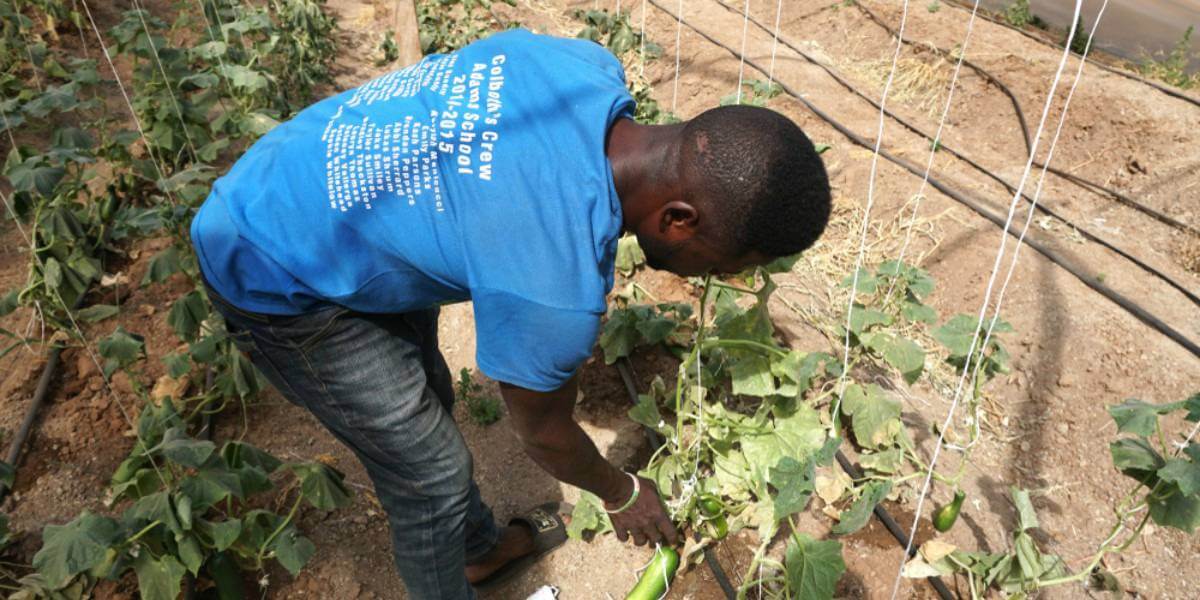
Transforming Nigeria's agriculture for higher growth
Published 07 Oct,2020 via The Nation - As Nigeria continues to grow its farming capacity, startups are rushing to add technology and structure to centuries-old, largely informal supply chain. They are building a marketplace to empower poor farming families, DANIEL ESSIET reports.
Nigeria’s agriculture and overall food system is still facing some challenges. One of them is uncertainty about the prices of crops and farmers having ready markets to sell their produce. This has kept a lot farmers from growing their businesses.
To boost growth, analysts said Nigeria needed to improve supply, quality and food safety with added value. In addition, they called for short-and longer-term strengthening of public and market institutions to achieve the ambitious goals for agriculture and the overall food system.
In response to this, there are efforts to introduce supply chain efficiencies and ensure better prices for farmers.
Organisations are cooperating with farmers on selling products, both offline and online, to raise their income
Speaking on this, the non-Executive Director, FoodCrowdy, Tobi Fapohunda, said e-commerce platforms were redoubling efforts to help farmers to sell their over-stocked products online.
He added that connecting farmers with e-commerce as a method of poverty alleviation had become part of efforts of the tech eco system to boost sales and distribution channel for farmers.
Giving another reason for agritech platforms in agriculture, Fapohunda said many farmers had few financial resources during the growing season to increase their revenue and improve crop quality.
He explained that after harvesting their crops, they were not able to sell at good prices, leaving families unable to compete.
He said for agriculture to grow, farmers need some guarantees of offtakers to purchase their produce after harvest. This, he added, would serve as an incentive for farming families to raise their crops with due care, as this will both improve their quality and increase their output.
The marketplaces, accounting to him remove layers between the farm and the end-customers.
Though such marketplaces are booming all over Nigeria, Fapohunda said they were necessary as they focused on simplifying the sale of produce and inputs.
He said offtaking of produce was one of the services, they offered, including agricultural input sourcing and services, adding that FoodCrowdy helps to ensure regular secured income for farmers and build successful agricultural entrepreneurs and thus impact the entire rural eco-system.
Customers, he explained could place orders through an app and are offered better prices, scheduled deliveries and a quality assurance. The produce he dded is tracked at every stage, thus offering product traceability.
Launched in August, Fapohunda said the marketplace helps consumers access 103 Nigerian food items online.
According to him,the consumer creates a free online account and requests a specific produce —whether at home by computer or in the field on a free smartphone app.
Fapohunda said Nigeria needs agricultural value chains with technologies that digitises food quality and safety and provide end-to-end commodity traceability.
The Chief Executive, Octave Analytics, Blessing Oladeji observed that the agricultural sector hasn’t really been at its best as pertaining to data analytics. He said the use of data was critical for agritech platforms that want to achieve success.
Apart from helping them to obtain better prices for produce, he added that they wee able come up with interesting formulations to expand the outreach of their markets.
He said data helps agritech startups such as FoodCrowdy to aggregate major points from which food items are sourced and where to establish mini stores.
He stressed that such services allows businesses to make informed business decision to boost revenue cand extend the average lifespan of customers.
The President, Nigeria Computer Society, Prof Adesina Sodiya, said there was the need to deploy technology to enrich the agricultural sector by providing real value and growth right through the supply chain, to the farmers.
Adesina maintained that the farming industry has become more important than ever before with increasing population .
To meet this demand, he said farmers and agricultural companies needed to turning to the Internet of Things (IoT) for analytics and greater production capabilities.He said IoT is pushing the future of farming to the next level urging farmers to begin to employ technologies to improve the efficiency of their daily work.
For the agric industry to grow, he said efforts must be made to deploy technology to drive smart farm construction, rural revitalisation and smart agriculture.
According to him, increasing use of technology will enable creation of models of the Internet of Things agricultural towns.
Copyright © 2020 Vintage Press Limited. Provided by SyndiGate Media Inc. (Syndigate.info)
DISCLAIMER: This content is provided to us “as is” and unedited by an external third party provider. We cannot attest to or guarantee the accuracy of information provided in this article from the external third party provider. We do not endorse any views or opinions included in this article.

DANIEL ESSIET